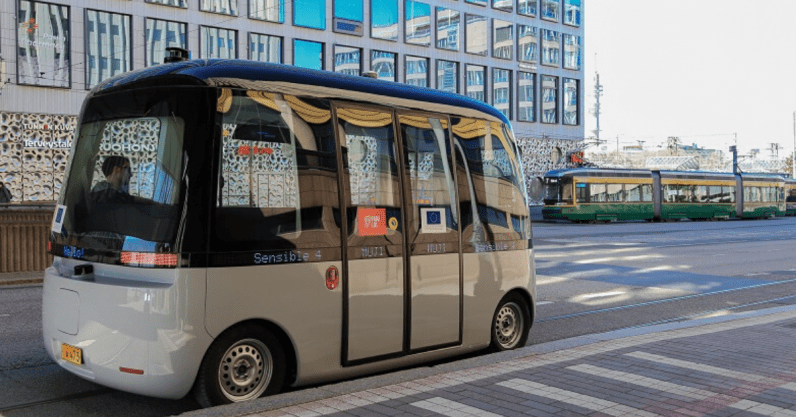Three autonomous bus prototypes will be evaluated in real-life conditions on the roads of five European cities. The tests mark the field trial phase of the project FABULOS (Future Automated Bus Urban Level Operation System) , which aims to accelerate the introduction of new types of automated last mile solutions in Europe.
The FABULOS project
It focuses on the management of autonomous fleets within public transport systems. Pilot projects have already started Helsinki, Finland, and are expected to continue this month in Gjesdal (Norway) e Tallinn (Estonia), depending on the restrictions dictated by Covid-19. They will follow Lamia (Greece), Helmond (Netherlands) and other cities in the fall.
Each of the three suppliers participating in the FABULOS project (these are the companies Sensible4-Shotl, Saga and Mobile Civitatem) received up to 1 million euros to drive their autonomous buses in two cities. Field tests of the autonomous vehicles they will last 50 days and will aim to evaluate the functionality, interoperability and safety of autonomous fleets.
Helsinki, the beginning of everything
The first road test of FABULOS was launched in April in Helsinki. The fleet of three autonomous vehicles travels on a circular route, starting from the busy Pasila train station, at a maximum speed of 40 km per hour. Most of the route is mixed traffic and includes several intersections with traffic lights, right turns, parking on the side of the road and a roundabout. There are three bus stops on the route, and on-demand trips are available via a mobile app.
Jan Vapaavuori, mayor of Helsinki, said: “Helsinki aims to be the most functional city in the world. Innovation to support better urban living conditions is at the center of our strategy. Therefore, promoting sustainable modes of transport is considered a top priority. We aim for a pleasant environment, good accessibility and smooth transportation, as well as reducing environmental impact. In my opinion, the FABULOS project can contribute significantly to achieving this goal by demonstrating the advantages of autonomous public transport."
Technically, FABULOS autonomous buses do not need a driver or steward on board. During the pilot project, however, the fleets will be monitored by a dedicated remote control centre. In exceptional situations a remote operator can authorize the passage of an object, such as a car blocking the road, or take control of vehicles.


